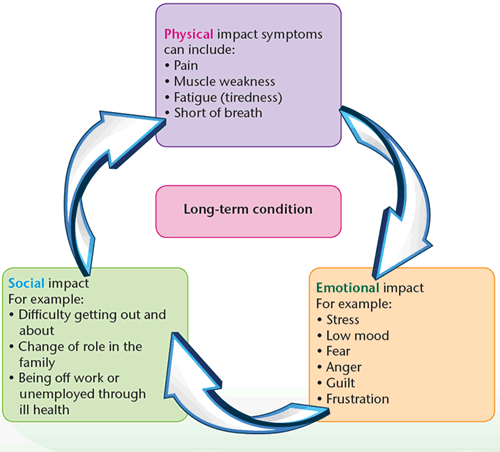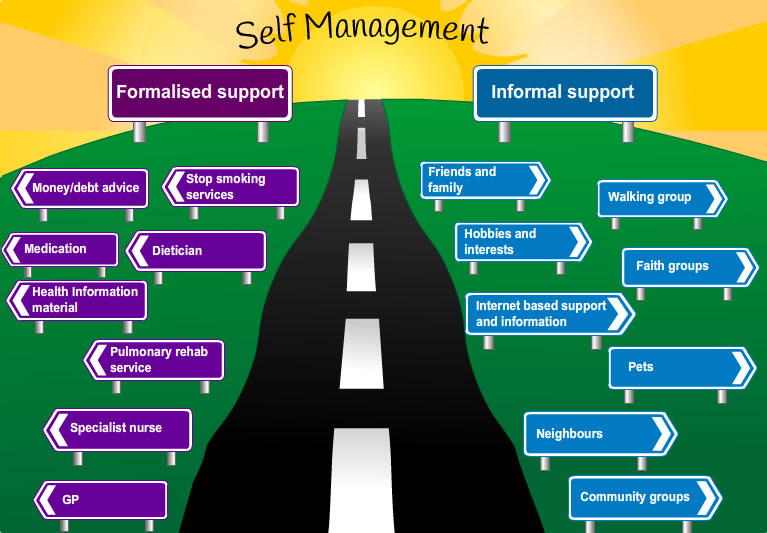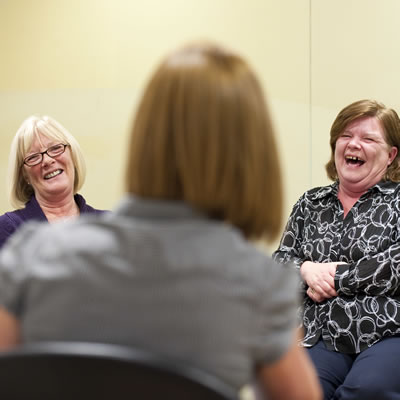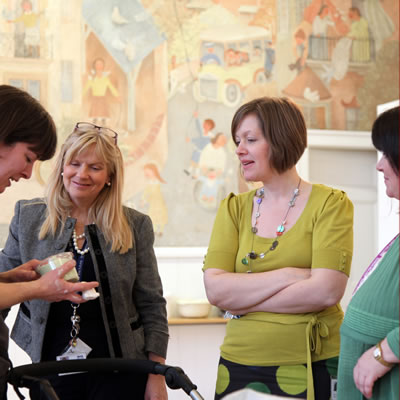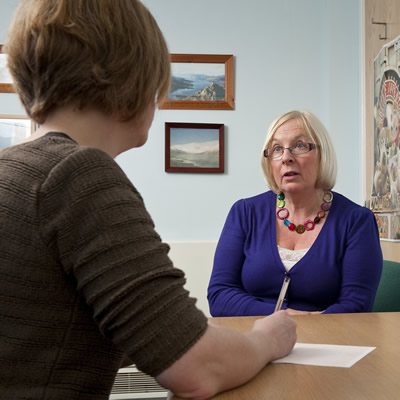
© Crown Copyright 2009
The amount of time you spend face to face with individual health and social care professionals is very limited. A GP appointment lasts on average between 6 and 10 minutes.
So when you do see a health and social care professional go prepared. This will make the most of your time with the healthcare professional. You can explain your concerns and get your questions answered. This helps to build a relationship with your health and social care team. They have knowledge of your condition but you are the one who can tell them how it is affecting you and your daily life.
Every appointment should involve communication both ways. Never be afraid to ask questions or ask for more explanation if you are not sure. Take a note book or list so you can write down important instructions or names of new medicines. Sometimes a diagram or leaflet from your health or social care professional can help you to understand clearly. If you have an hearing, eye sight or memory problems you can ask someone to accompany you to your appointment.
For more information on health and social care teams see:
- Moving on together: Managing your time with people who provide health and social care section [.pdf, 6.08MB], Moving on Together (MoT): A self-management workbook by NHS Ayrshire & Arran.
- Chest Heart & Stroke Scotland factsheet: Making the most of a visit to your doctor [.pdf]
- NHS Inform: It’s ok to ask, getting the most out of your healthcare appointments [.pdf]


